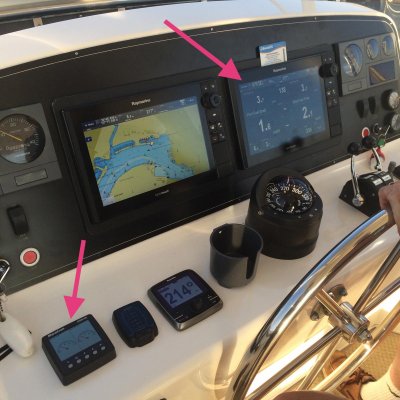Codger2
Guru
- Joined
- Oct 11, 2007
- Messages
- 6,691
- Location
- US
- Vessel Name
- Circuit Breaker
- Vessel Make
- 2021..22' Duffy Cuddy cabin
If one really wants to nail down their fuel consumption plus a lot of other fuel related info (ie: time to go. distance to go, miles /gal, etc,) I recommend the Maretron FFM100 Fuel Monitoring System. It's not cheap but it gives you everything you want to know at a glance! No charts, no searching or comparing engines, just accurate data in real time. The photo below displays what the Raymarine es128 can show but that's only a small part of what the Maretron DSM100 (needed for the FFM100) can tell you. As I said, if you really want to know (not guess or compare charts) get a real time fuel management system and be done with it! I know this might be interpreted as "an elitist ($$$) approach to the fuel management problem but I'm 76 years old and tired of "guessing about such matters!About the fun part, as everybody agrees, only correct way to exactly know your load, whichever engine, is to measure fuel consumption, although not always very practical way.
Attachments
Last edited:




